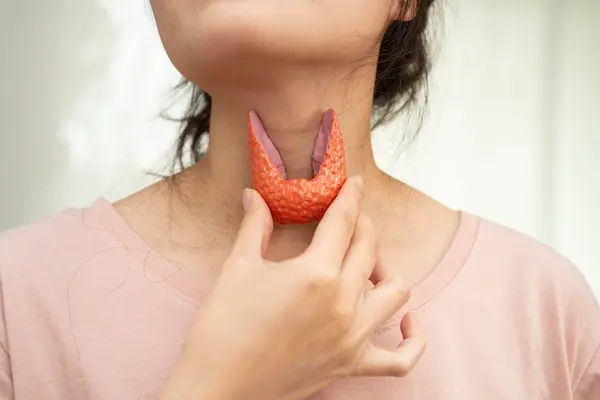The Ultimate Guide to Your Newborn's First 28 Days
A complete week-by-week newborn care guide covering feeding, sleep, hygiene, health checks, and red flags to watch in the first 28 days.


Introduction
Welcome to parenthood! The first 28 days with your newborn—often called the fourth trimester—are a beautiful, overwhelming, and miraculous time. This period is all about helping your baby adjust to the world outside the womb while you recover and learn to interpret their unique needs. This comprehensive guide to days new care is designed to walk you through each week, step-by-step, transforming uncertainty into confidence. We'll cover everything from feeding and sleeping to hygiene and health red flags, ensuring you feel prepared and empowered to provide the best possible care for your little one during these critical first weeks. Remember, you're not just surviving; you're learning the language of your new baby.
Preparing for Day One: The Essential Checklist
Before you even bring your baby home, a little preparation can make those first few days new care much smoother. The goal is to minimise stress and maximise bonding time.
The Nursery Setup
Keep it simple, safe, and serene. The American Academy of Pediatrics (AAP) recommends your newborn sleeps in your room in their own bassinet or cot for at least the first six months to reduce the risk of SIDS. Ensure the cot mattress is firm and covered with a fitted sheet. Avoid pillows, blankets, stuffed animals, and bumper pads. A comfortable rocking chair, a dimmable light source, and easy-access storage for nappies and clothes are invaluable.
Must-Have Supplies for the First Month
You don't need everything on the market, but a well-stocked station is key. Essentials include: nappies (newborn and size 1), wipes, a gentle nappy cream, bodysuits and sleepers, swaddle blankets, muslin cloths, a digital thermometer, a baby nail file or clippers, a bulb syringe or nasal aspirator, and feeding supplies (whether bottles, formula, or a breast pump). Having these within arm's reach will save you countless trips upstairs.
Week 1: The Hospital to Home Transition
The first week is a whirlwind of emotions and learning. Your baby is sleeping a lot (up to 16-18 hours a day, in short stretches), and your primary focus is on feeding and bonding.
Day 1-3: Mastering Feeding and Soothing
In the first 72 hours, your baby's stomach is tiny, about the size of a cherry. They will feed frequently—every 2-3 hours—on nutrient-rich colostrum. Watch for hunger cues like lip-smacking, rooting, and sucking on hands. Don't expect a strict schedule; newborn care after birth is demand-led. Soothing techniques like swaddling, shushing, and gentle rocking mimic the womb and can calm a fussy baby.
Day 4-7: The "Waking Up" Phase and Umbilical Cord Care
Around day 4, your baby may "wake up" and become more alert and fussy. This often coincides with the mother's milk coming in. Keep track of wet and dirty nappies; by day 5, you should see 6+ wet nappies and 3-4 yellowish, seedy stools every 24 hours. This is a key sign they're getting enough milk. For the umbilical cord stump, keep it clean and dry. Fold the nappy down to expose it to air and avoid submerging it in water during sponge baths. It will typically fall off on its own within two weeks.
Consult a Gynaecologist for Personalised Advice
Week 2: Establishing Rhythms and Reading Cues
By the second week, you're starting to recognise patterns in your newborn's behaviour, even if they are still unpredictable.
Understanding Sleep Cycles and Safe Sleep Practices
Newborns have shorter sleep cycles than adults, moving through active (REM) and quiet sleep. They often grunt, stir, and even cry out in active sleep before settling back down. Always place your baby on their back to sleep on a firm, flat surface. This is the single most effective way to prevent SIDS. Avoid letting them sleep in swings, car seats, or loungers for extended periods.
Decoding Your Newborn's Different Cries
You'll begin to distinguish a hunger cry from a tired cry or a cry of discomfort. A hunger cry is often rhythmic and accompanied by rooting. A tired cry might be more whiny and come with eye-rubbing or yawning. A pain cry (like from wind) is often sudden, loud, and high-pitched. Responding consistently to your baby's cries builds trust and security, a core part of their development in the first month.
Week 3: Growth Spurts and Developmental Leaps
Just as you think you've figured things out, week 3 often brings a change. Your baby is becoming more aware of their surroundings.
Cluster Feeding and Increased Fussiness
Around this time, many babies experience a growth spurt. You may notice cluster feeding, where they want to nurse very frequently for a few hours, often in the evening. This is normal and helps boost your milk supply to meet their growing needs. This can be exhausting but is temporary. They may also be fussier than usual.
Tummy Time and Early Stimulation
You can start introducing short periods of tummy time this week. Aim for 2-3 sessions a day for 3-5 minutes each, always supervised. This helps strengthen their neck, shoulder, and arm muscles. Don't worry if they fuss; even a minute counts. Other simple stimulations include talking and singing to them, showing them high-contrast black-and-white images, and letting them grasp your finger.
Week 4: Looking Ahead and the First Check-up
You've almost made it through the first month! Your baby is more alert and interactive, and you're preparing for their first major paediatric appointment.
Recognising Social Smiles and Tracking Objects
While true social smiles may still be a week or two away, you might see fleeting, reflex-like smiles, especially during sleep. Their vision is improving, and they can now focus on objects 8-12 inches away—perfect for seeing your face during feeds. You may notice them beginning to track a toy or your face slowly from side to side.
Preparing for the One-Month Paediatric Visit
This visit is crucial for tracking growth and development. The doctor will measure weight, length, and head circumference, expecting them to have returned to their birth weight and beyond. Come prepared with questions about feeding, sleep, baby bowel movements, or any concerns about skin (like baby acne or cradle cap). If you have specific concerns about weight gain or feeding, consulting a paediatrician online with Apollo24|7 before the visit can provide reassurance and help you prepare your questions.
Health and Hygiene: Non-Negotiable Daily Care
Bathing Your Newborn Safely
Until the umbilical cord falls off, stick to sponge baths. After that, 2-3 tub baths per week are sufficient to keep them clean without drying out their sensitive skin. Use a mild, unscented baby soap. Never leave your baby unattended in water, even for a second. Gather all supplies (tub, towel, flannel, soap, clean nappy, and clothes) beforehand.
Nappy Changing 101: Preventing and Treating Rash
Change nappies frequently—every 2-3 hours and immediately after a bowel movement. At each change, clean the area thoroughly with wipes or a wet flannel. Allow the skin to air dry completely before applying a thick layer of zinc-oxide-based nappy cream to create a protective barrier. If a rash appears, increase air time and use cream consistently. If a rash is severe, bleeds, or doesn't improve after a few days of treatment, consult a doctor online with Apollo24|7 to rule out a yeast infection needing medicated cream.
Beyond the Baby: Caring for Yourself and Your Family
The Partner's Role: A Crucial Support System
The non-birthing parent's role is vital. They can handle winding, nappy changes, bringing the baby for night feeds, and soothing, which allows the breastfeeding parent to rest. Their support extends to household chores and emotional encouragement, creating a strong team dynamic from the start.
Spotting Signs of Postnatal Depression
The "baby blues" (mood swings, anxiety, sadness) are common in the first two weeks. However, if intense feelings of sadness, anger, or anxiety persist beyond that and interfere with your ability to function, it could be postnatal depression (PND). Other signs include a lack of interest in your baby, overwhelming fatigue, and changes in appetite. This is a medical condition, not a failure. Seeking help from a healthcare provider is critical for your well-being and your baby's.
When to Worry: Red Flags to Call the Doctor
Trust your instincts. You know your baby best. Contact your paediatrician immediately if you notice:
Fever and Breathing Difficulties
A temperature of 38°C (100.4°F) or higher in a baby under 12 weeks is a medical emergency. Also, seek immediate care for signs of respiratory distress: grunting, flaring nostrils, the skin pulling in between the ribs with each breath (retractions), or breathing that is persistently faster than 60 breaths per minute.
Lack of Wet Nappies and Lethargy
Dehydration is a serious concern. Call the doctor if your baby has fewer than 6 wet nappies in 24 hours, has a sunken soft spot on their head, or is unusually lethargic or difficult to wake for feeds. Jaundice (yellowing of the skin and eyes) that worsens or spreads to the arms and legs also requires prompt medical evaluation.
Conclusion
The first 28 days of your newborn's life are a profound journey of connection and discovery. While it may feel like a blur of feeds, nappy changes, and sleepless nights, you are laying the foundation for a lifetime of health and secure attachment. This guide to days new care has equipped you with the knowledge to navigate this special time with confidence. Remember, there is no "perfect" way to do this. Every baby is unique, and you will learn their language day by day. Be gentle with yourself, celebrate the small victories, and don't hesitate to lean on your support system—and your paediatrician—whenever you need to. You've got this.
Consult a Gynaecologist for Personalised Advice
Consult a Gynaecologist for Personalised Advice

Dr. Mona Yadav
Obstetrician and Gynaecologist
19 Years • MBBS, MD (Obstetrics & Gynaecology)
Dombivli
Nulife multispeciality, Dombivli

Dr. Sheetal Aggarwal
Obstetrician and Gynaecologist
17 Years • MBBS, MS (Obstetrics & Gynaecology)
Gurugram
Dr Sheetal's clinic, Gurugram

Dr. Ramya G S
Obstetrician and Gynaecologist
11 Years • MBBS, DGO - Obstetrics & Gynaecology, DNB - Obstetrics & Gynaecology
Bengaluru
Apollo Clinic, JP nagar, Bengaluru

Dr. Parul Sharma
Obstetrician and Gynaecologist
8 Years • MBBS, MS (Obstetrics & Gynaecology)
New Delhi
THE DOCTORS NESST, New Delhi

Dr. Soumya P
Obstetrician and Gynaecologist
6 Years • MBBS,MS (OBST & GYNAE)
Bengaluru
Apollo Clinic, JP nagar, Bengaluru
Consult a Gynaecologist for Personalised Advice

Dr. Mona Yadav
Obstetrician and Gynaecologist
19 Years • MBBS, MD (Obstetrics & Gynaecology)
Dombivli
Nulife multispeciality, Dombivli

Dr. Sheetal Aggarwal
Obstetrician and Gynaecologist
17 Years • MBBS, MS (Obstetrics & Gynaecology)
Gurugram
Dr Sheetal's clinic, Gurugram

Dr. Ramya G S
Obstetrician and Gynaecologist
11 Years • MBBS, DGO - Obstetrics & Gynaecology, DNB - Obstetrics & Gynaecology
Bengaluru
Apollo Clinic, JP nagar, Bengaluru

Dr. Parul Sharma
Obstetrician and Gynaecologist
8 Years • MBBS, MS (Obstetrics & Gynaecology)
New Delhi
THE DOCTORS NESST, New Delhi

Dr. Soumya P
Obstetrician and Gynaecologist
6 Years • MBBS,MS (OBST & GYNAE)
Bengaluru
Apollo Clinic, JP nagar, Bengaluru
More articles from General Medical Consultation
Frequently Asked Questions
How often should I bathe my newborn in the first month?
Until the umbilical cord stump falls off (usually by 2 weeks), stick to sponge baths 2-3 times a week. After the stump is gone, you can transition to tub baths 2-3 times per week to avoid drying out their sensitive skin.
Is it normal for my newborn's sleep patterns to be so erratic?
Absolutely. Newborns have not yet developed their circadian rhythm. Erratic sleep with short 2-4 hour stretches is completely normal in the first month. A more predictable pattern will emerge around 3-4 months.
My baby has hiccups all the time. Should I be concerned?
Hiccups are very common in newborns and are rarely a cause for concern. They are caused by the immature diaphragm muscle spasming. They usually resolve on their own within a few minutes.
How can I tell if my baby is getting enough breast milk?
The best indicators are output and weight gain. Look for 6+ wet nappies and 3-4 yellow, seedy stools per day after your milk comes in. Steady weight gain at paediatric check-ups is the ultimate confirmation.
When does the umbilical cord stump typically fall off?
The stump usually dries up and falls off on its own within 1-3 weeks after birth. Keep it clean and dry, and avoid pulling it off prematurely.




